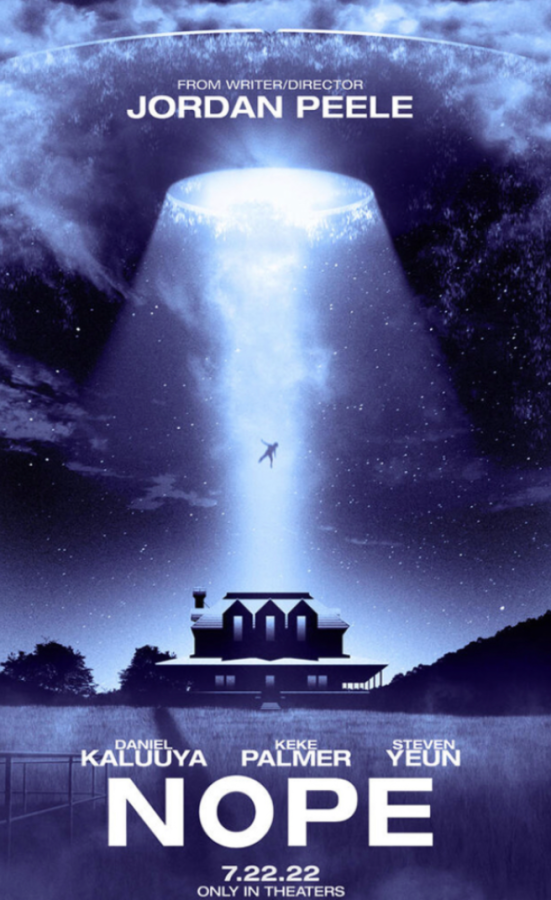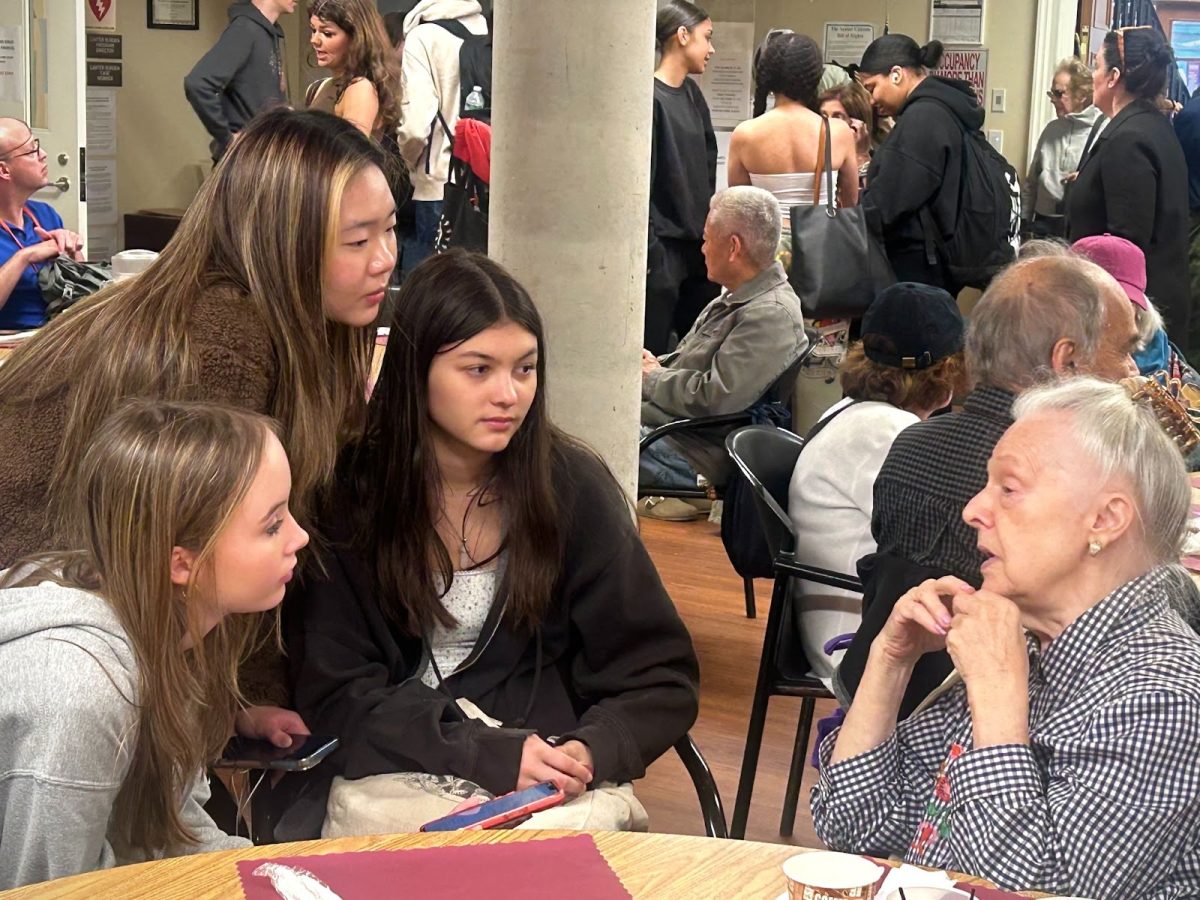Nope Movie Review
November 17, 2022
Jordan Peele’s third feature film, Nope, hit theaters this July, providing both amusing and thought-provoking entertainment for moviegoers everywhere. The film begins when two siblings named OJ and Emerald, played by Daniel Kaluula and Keke Palmer, notice strange extraterrestrial activity occurring at their family-owned movie ranch located in the foothills of Los Angeles. The plot of the movie is established when the two decide to try and document footage of the UFO, which introduces the themes and meanings that are relevant throughout the movie.
Much like Peele’s first film, Get Out (2017), symbolism plays a vital role in actually obtaining a clear understanding of what the true meaning of the film is, making these movies more intellectual and well-thought-out compared to other films in the horror genre. Get Out and Nope are arguably very similar as overall movies, however, they differ in several significant aspects. One of these is that Get Out is far more clear-cut and relatively precise with understanding themes, whereas Nope targets a more subtle technique to its concepts that comes across as less bold than Get Out.
This leads to another difference, which is that Nope is able to take this approach by relying more on visuals. Much of the film consists of explicating themes through seemingly unrelated flashbacks and build-ups to ensure the audience is prepared for everything that is about to come. The viewer’s understanding of the movie is incomplete without the final half-hour: As the most action-packed and visually effective portion, it answers all the viewer’s confusion and makes the film more of a thriller than a horror.
Without providing too much detail, some of the many themes include capitalism, recognition of unsung heroes, general human and animal nature, and human error. The theme of capitalism is expressed when different characters in the film have different reasons for pursuing evidence of the UFO. The two siblings begin their attempt to capture footage of alien life for the solitary motive of making money, later on, they pursue the footage for its creativity, the undisputed satisfaction of something so new and undomesticated.
Another character named Jupe (played by Steven Yeun), the owner of a nearby western-themed amusement park, tries to profit off the UFO sightings for the sole purpose of pride and wealth. In some ways, Nope becomes a tribute to everyday men and women who don’t receive gratitude or recognition for their labor. The film has a very present neo-western aesthetic, which is when traditional western film tropes are fitted into contemporary settings. Because much of the film takes place on a ranch there are constant visuals of horses, cowboy boots, and desert scenery which creates a lot of genuine western scenery, however, certain scenes take place in the city part of Los Angeles or in movie studios. There’s especially a loss of western-authenticity in the scenes that take place in Jupe’s neighboring amusement park which depicts a tacky and cheap approach to profit off a western setting–yet another example of capitalism and profit.
This goes on to give tribute to the underdog, OJ, who works behind the scenes of movies doing strenuous work to make actors stand out and is eventually shown in a cinematic representation of a typical western hero through visuals like riding horses. This image pays homage to the behind-the-scenes workers of everyday life since OJ is a backstage employee who’s never in the spotlight. Contrary to this, characters like Jupe are shown wearing vibrant and lively cowboy attire making them falsely admirable figures despite not being the protagonist nor being shown in a particularly morally-flattering way throughout the film.
These are just some of the many themes and meanings of Nope that create such a thrilling and appealing movie. Overall, Nope is an extremely engaging film, crammed with relevant messages and thoughtful storytelling, sure to make it stand out as one of the more illustrative and symbolic films of the year.






























rex • Nov 17, 2022 at 4:35 pm
i loved this movie and thought the theme of spectacle was the most engaging